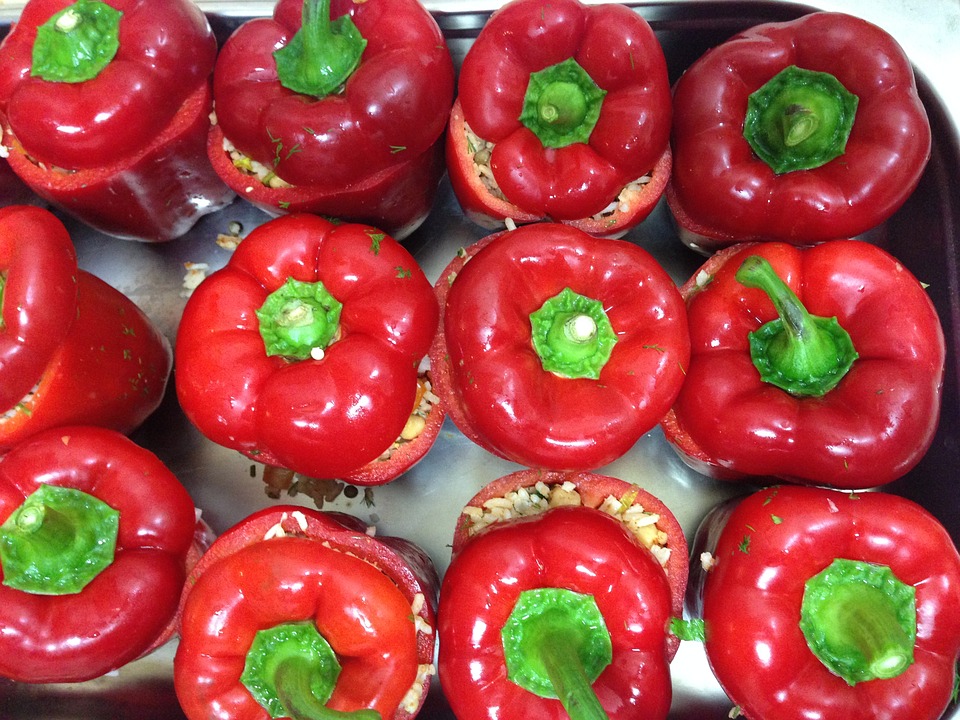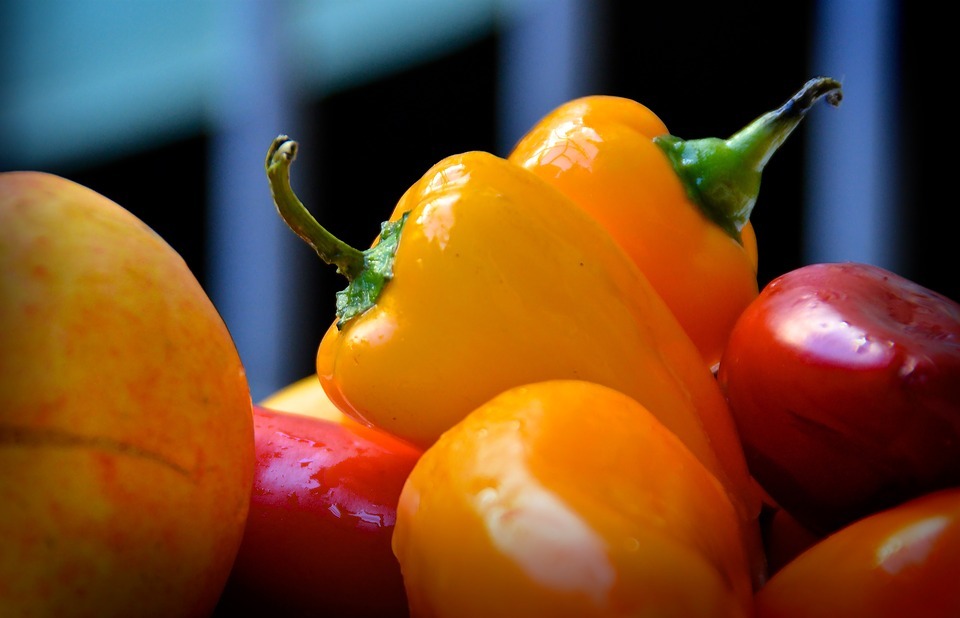This article will provide a comprehensive guide to understanding whether rabbits can safely consume peppers and what safe alternatives are available. We will explore the nutritional value of peppers, their potential risks to rabbits, and provide detailed information on safe vegetables and fruits that can be part of your bunny's diet. We will also discuss the importance of a balanced diet, including hay, fresh water, and commercial rabbit food, to ensure your bunny's optimal health and well-being.
Part 1: Peppers and Rabbits – An Exploration of Nutritional Value and Risks

1.1 Nutritional Value of Peppers
Peppers are a rich source of vitamins, minerals, and antioxidants. They contain vitamin C, vitamin A, vitamin K, potassium, and dietary fibre. However, the sugar content in peppers is significant and can be detrimental to a rabbit's health.
1.2 Sugar Content: A Potential Issue
The high sugar content in peppers can cause digestive upset, dental problems, and obesity in rabbits. Their digestive systems are not designed to handle large amounts of sugar, and it can lead to various health issues.
1.3 Specific Pepper Types: A Closer Look
Different types of peppers have varying sugar and spice levels. Bell peppers, known for their sweet flavour, are generally considered safer for rabbits than spicy peppers like chilli peppers.
1.4 The Risks of Peppers for Rabbits
The consumption of peppers, especially spicy varieties, can pose several risks to rabbits. These include:
- Digestive Issues: The high fibre and sugar content can cause diarrhoea, bloating, and abdominal pain in rabbits.
- Dental Problems: The seeds and stems of peppers are hard and can wear down their teeth, leading to dental issues and infections.
- Obesity: High sugar intake can contribute to weight gain and obesity, which can lead to further health complications.
- Toxicity: Spicy peppers contain capsaicin, a compound that can cause digestive upset and irritation in rabbits.
Part 2: Safe Alternatives for Your Bunny’s Diet

2.1 Safe Vegetables for Rabbits
Rabbits can benefit from a diverse range of vegetables that are low in sugar and high in fibre. Some safe and nutritious options include:
- Parsley
- Celery
- Spinach
- Kale
- Broccoli
- Carrot tops
- Courgettes
- Dandelion greens
- Bell peppers (in moderation)
2.2 Safe Fruits for Rabbits
Fruits should be offered in moderation due to their sugar content. Choose fruits that are lower in sugar and higher in fibre:
- Strawberries
- Blueberries
- Raspberries
- Apples (without seeds)
- Bananas (in moderation)
2.3 Fresh Herbs for Rabbits
Certain herbs can also be a healthy addition to a rabbit's diet. Some safe and beneficial herbs include:
- Mint
- Basil
- Cilantro
- Dill
Part 3: Building a Balanced Diet for Your Bunny
3.1 The Importance of Hay
Hay forms the foundation of a healthy rabbit diet. It provides essential fibre, which is crucial for digestion, dental health, and overall well-being. Timothy hay is recommended for adult rabbits, while alfalfa hay is suitable for young growing bunnies.
3.2 Fresh Water: Essential for Hydration
Providing a constant supply of fresh, clean water is crucial for maintaining your rabbit's hydration and overall health. Ensure that their water bowl is cleaned and refilled daily.
3.3 Commercial Rabbit Food: A Supplementary Element
High-quality commercial rabbit food can supplement a diet of hay and fresh vegetables. Look for food formulated specifically for rabbits and avoid foods with fillers, artificial ingredients, and added sugars.
3.4 Treats: A Limited Indulgence
Treats should be given in moderation and should not replace a balanced diet of hay, fresh vegetables, and a quality rabbit food.
Part 4: Feeding Peppers to Rabbits: A Cautious Approach
4.1 Moderation is Key
If you decide to offer peppers to your rabbit, it's crucial to do so in moderation. A small piece of bell pepper, once or twice a week, can be a safe and occasional treat.
4.2 Choosing the Right Type of Pepper
Bell peppers are generally the safest option for rabbits. Avoid spicy peppers like chilli peppers and jalapenos.
4.3 Preparation Matters
Always remove the seeds and stems before offering peppers to your rabbit. The seeds are a choking hazard, and the stems are too hard to digest.
4.4 Monitoring Your Rabbit's Reaction
Keep a close eye on your rabbit's reaction to peppers. Any signs of digestive upset, like diarrhoea or bloating, should prompt you to discontinue feeding them peppers.
Part 5: Recognizing and Addressing Digestive Issues in Rabbits
5.1 Common Signs of Digestive Problems
If you notice any of the following symptoms, consult a veterinarian immediately:
- Diarrhoea
- Bloating
- Loss of appetite
- Lethargy
- Abdominal discomfort
5.2 Early Intervention for Optimal Outcome
Early detection of digestive issues is crucial for successful treatment. Promptly addressing problems can prevent serious complications and improve your rabbit's chance of recovery.
Part 6: FAQs
6.1 Can rabbits eat chilli peppers?
No, chilli peppers are not safe for rabbits. They contain capsaicin, a compound that causes spiciness and can be toxic to rabbits.
6.2 What about green peppers?
Green bell peppers are generally safe for rabbits in moderation. They are lower in sugar content than other coloured peppers.
6.3 Can rabbits eat pepper plants?
No, rabbits should not eat pepper plants. The leaves and stems contain compounds that can be harmful to their digestive system.
6.4 How often can I give my rabbit peppers?
A small piece of bell pepper, once or twice a week, is a safe treat for rabbits. However, it's essential to monitor their reaction and adjust the frequency accordingly.
6.5 Are peppers better than other vegetables?
While peppers offer some nutritional value, they are not a necessary part of a rabbit's diet. A variety of other safe and nutritious vegetables should be offered instead.
6.6 What if my rabbit eats a pepper accidentally?
If your rabbit eats a pepper accidentally, closely monitor them for any signs of digestive issues. If you notice any problems, consult a veterinarian immediately.
6.7 How can I ensure my rabbit is getting enough fibre?
Hay should make up the majority of your rabbit's diet. Provide a constant supply of Timothy or alfalfa hay for optimal fibre intake.
6.8 What are the signs of dental problems in rabbits?
Signs of dental problems include difficulty eating, dropping food, weight loss, and excessive saliva. If you notice these signs, consult a veterinarian for professional care.
6.9 Can I give my rabbit lettuce?
While lettuce is often considered safe, it is low in nutritional value and can cause diarrhoea in some rabbits. It is best to choose other leafy greens that are more nutritious.
6.10 My rabbit is overweight. How can I help them lose weight?
Consult your veterinarian to create a weight loss plan. This may involve reducing the amount of commercial food, increasing exercise, and offering a diet rich in hay and low-calorie vegetables.
Everyone is watching
-

Do Rabbits Lay Eggs? (The Surprising Truth)
OTHER TYPES OF PETSThis article will unravel the common misconception that rabbits lay eggs, exploring the fascinating world of r...
-

What's a Group of Rabbits Called? (A Comprehensive Guide)
OTHER TYPES OF PETSThis article delves into the fascinating world of rabbits, exploring the various terms used to describe a grou...
-

Can Rabbits Eat Grapes? A Guide to Safe Rabbit Treats
OTHER TYPES OF PETSThis comprehensive guide will explore the safety and suitability of grapes for rabbits, providing detailed inf...
-

Predators That Hunt Rabbits: A Guide to Natural Enemies
OTHER TYPES OF PETSI've always been fascinated by the circle of life, that delicate dance between predator and prey. Growing up ...
-

Are Rabbits Nocturnal Animals?
OTHER TYPES OF PETSThe question of whether rabbits are nocturnal animals is a fascinating one, with a surprisingly complex answer...
